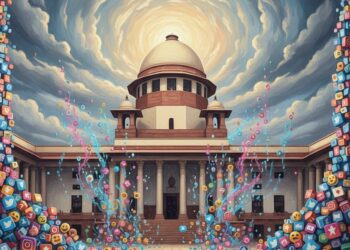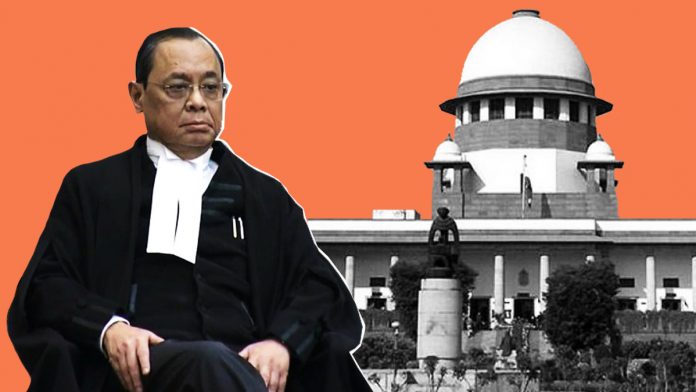When, on June 26, 2025, an official as highly positioned as the general secretary of Rashtriya Swayamsewak Sangh (RSS), Dattatreya Hosabale, called for a “review” of the inclusion of ‘socialism’ and ‘secularism’ in the Preamble to the Constitution of India on the grounds that the words did not figure in the original Constitution enacted soon after the independence and were added during the 1975 emergency, he was effectively calling for the deletion of the words. The reasoning that it was not part of the originally enacted constitution flies in the face of the constitutional provisions that allow for the amendment of the constitution and vests Parliament with the plenary powers to do it subject to the other provisions of the constitution, and also subject to the Doctrine of Basic Structure that the Supreme Court read into the limitations on the otherwise unbridled constituent powers of Parliament by way of a Constitution Bench judgment in Kesavananda Bharati Sripadagalvaru v. State of Kerala, AIR 1973 SC 1461.
The other cited reason that it was enacted during the 1975 Emergency is not any better either, for no constitutional provisions were violated when the words in question were introduced into the Preamble. Furthermore, when the Janata Party came to power with a landslide in March 1977 with Morarji Desai as the Prime Minister, the 42nd Amendment to the Constitution was indeed reviewed, and first the 43rd Amendment was brought in and then a more thorough 44th Amendment was enacted to effectively undo all the damage done to the Constitution during the Emergency, principally by the 42nd Amendment to the Constitution. Several safeguards were also built into the Constitution to prevent the reiteration of the 1975 nightmare.
Both 43rd and 44th Amendments to the Constititution were enacted in Parliament by the Janta Party government that consisted of such influential leaders as Atal Bihari Vajpayee and Lal Krishna Advani of Bhartiya Jana Sangh, the forerunner of Bhartiya Janta Party (BJP), which became a sperate political party only on April 6, 1980 with Atal Bihari Vajpayee as its first President after splitting from Janta Party. And Janta Party left the Preamble with ‘socialist’ and ‘secular’ untouched despite having made far-reaching amendments to the Constitution. So the issue stands settled, and raking it up makes little sense when the Preamble, as it stands, does not directly impact any of the justiciable provisions of the Constitution, and serves largely as an interpretive device, albeit of significant weight.
The Supreme Court has held the Preamble to be part of the Basic Structure of the Constitution in Kesavanant Bharti itself, as far back as 1973, and held that while the Preamble itself is not enforceable, it does serve as the guiding light to interpret the provisions of the Constitution.
So it made perfect sense when The Hindu Editorial of July 5, 2025, ruminating on Hosabale’s call for “review” of the two terms, said that the words reflected “broad consensus in Indian politics that has held for decades” and that “there is nothing to be achieved by raking up a meaningless debate on these words”, and that there was no “ideological, legal or practical reasoning for this demand.” But it’s not just me or a newspaper editorial saying that. The Supreme Court pretty much shares the view.
On November 25, 2024, the Supreme Court dismissed Writ Petitions filed in 2020 challenging the insertion of ‘socialist’ and ‘secular’ in the Preamble to the Constitution of India [Dr. Balram Singh & Ors. v. Union of India, 2024 LiveLaw (SC) 917], trashing them summarily, observing: “The writ petitions do not require detailed adjudication as the flaws and weaknesses in the arguments are obvious and manifest.” The apex court further said, questioning the hopelessly belated challenge, “The fact that the writ petitions were filed in 2020, forty-four years after the words ‘socialist’ and ‘secular’ became integral to the Preamble, makes the prayers particularly questionable. This stems from the fact that these terms have achieved widespread acceptance, with their meanings understood by “We, the people of India” without any semblance of doubt. The additions to the Preamble have not restricted or impeded legislations or policies pursued by elected governments, provided such actions did not infringe upon fundamental and constitutional rights or the basic structure of the Constitution.”
Socialism: Constitutionally Implicit Welfarism
The principal reason cited ad nauseam for the deletion of the words ‘secularism’ and ‘socialism’ is that they were not part of the original constitution, and, therefore, the impression created is that these words sneak in such ideas through the backdoor that was not part of the original intent of the constitution makers. Put differently, India was never supposed to be a secular and socialist republic but was cunningly turned into one through political machinations of vested political interests in furtherance of a sinister plot. Of course, this makes no sense at all. But this is how it is suggestively projected.
One can always refer to the records of the Constituent Assembly debates to point out that socialism as welfarism and secularism as affording equal protection and freedom to all religions were not only always the intended features of Indian polity, but have also been made enforceable by the express provisions of the Constitution. And to see that, all one has to do is to crack open the Constitution itself and examine the text. But even that need not be done really, for one can always look at the words that were actually used in the Preamble to examine whether or not the Preamble as originally drafted and enacted itself implies both socialism and secularism in the same sense as they have been practiced in India over the years.
The Preamble to the Constitution of India, as it originally stood, clearly stated that “the people of India solemnly resolved” not only “to constitute India into a sovereign democratic republic” but also “to secure to all its citizens”, among other things, “JUSTICE social, economic and political”, and there can be no social justice or economic justice unless a welfare state works diligently towards formulating and implementing such social and economic policies that focus on uplifting all by leveling the playing field and assisting those who are in a disadvantageous position so that they could also contribute to the nation in whichever way they could. That’s what a Welfare State does. That’s what a Welfare State is.
Social justice is essentially about ensuring basic freedoms for all, a concern for the well-being and betterment of the least advantaged and most backward sections of the society, an unwavering commitment to making equal opportunities to augment one’s abilities available to all and also creating an environment where abilities can be profitably employed for individual betterment without being hamstrung by the inequalities that are natural byproducts of people trying to game the system to their unfair advantage, which happens to be a universal phenomenon. In the most simplistic terms, social justice is about substantive fairness as the founding principle of a society.
Economic justice is both an indispensable means to and a complementing subset of social justice, without which social justice in any form is not even conceivable, much less achievable, because without equitable distribution of resources, a just society is unthinkable. That’s also the reason why economic justice and social justice intersect at various places. After all, social inequalities cannot be completely and comprehensively addressed without addressing economic inequalities and ensuring equitable distribution of wealth with or without direct state intervention. Indian socialism treats state control of the means of production as one of the several means to ensure economic prosperity and self-reliance for the largest section of the society.
Mixed economy has been central to our economic policy, and different levels of state control over industries and means of production at different times were used to ensure social and economic justice for the largest number of people in India. Thus, socialism as a political philosophy or a political framework has always been a means to an end rather than an end in itself, and for that reason our “socialism” is just another word for ‘Welfare State’.
That the expression has not meant anything more than “Welfare State” is also empirically bolstered by the fact that we have consistently maintained different degrees of open market economy at different times, and we did finally throw open our economy in 1991, embracing a capitalist conception of free market with open arms even though we kept it sufficiently regulated to ensure that the powerful currents of capitalism did not erode the larger ends of social and economic justice — a principle that has been central to our foundational conception of Indian polity.
Our embrace of capitalism has, accordingly, been tempered by our understanding of it as a tool for social and economic justice rather than an ideological dogma. The Supreme Court underscored much the same point when it said: “In our context, socialism primarily means a welfare state. That is all. It has never prevented the private sector which is thriving well. We have all benefited from it. The word socialism is used in a different context, meaning that the State is a welfare state and must stand for the welfare of the people and shall provide equality of opportunities.” There has hardly ever been a doubt about that.
The point is, when we put social and economic justice together, which objectives the Preamble, as originally drafted, unequivocally espouses and stipulates, we get what socialism, as a socio-political philosophy, seeks to achieve. So the Preamble, as it originally stood, implied the essentials of socialism, and the Constitution, with the Preamble read with Directive Principles of State Policy (Article 38 and Article 39 in particular), settled it as a guiding principle for governance in India. The inclusion of the word “socialist” only made explicit what was always implicit in the Constitution right from the inception. And at no point of time, before or after the 42nd Amendment, was socialism taken to mean or practiced as absolute state control over the means of production, or as a shunning of capitalist endeavours. So there is no good reason to periodically protest the inclusion of “socialist” in the Preamble except to score brownies with the innocent and uninitiated to serve vested political interests.
Secularism: A Specific Incidence of Equality
What’s the opposite of secularism? Let’s start there. Let’s reframe the question to: If you do not want secularism, what does it get you instead? A theological polity? A system of governance where the State has an official religion? A State that throws its weight behind a particular faith? A nation where people are discriminated against and for based on the faith they profess and the myths they believe in? A State that places one faith and the people professing that faith above others? In Indian context, a Hindu Rashtra then — a counterweight to the Islamic Republic of Pakistan? A Hindu Pakistan, in other words? What would that be like? And how would it square with social equality that the Preamble to the Indian Constitution has always stipulated, and the provisions of the Constitution made enforceable right from the inception?
Would the principle of ‘equality among the equals’ be context-adjusted to ‘equality among Hindus’ as opposed to ‘equality among the non-Hindus’? Or would it be ‘equality among the Hindus’, ‘equality among the Muslims’, ‘equality among the Sikhs’, and so on? How would it then sit with the simple fact that ‘equality among the equals’, or the idea of treating similarly placed people equally, applies to demonstrable realities of the world rather than matters of faith and belief systems. Differently put, two people can be differently or similarly positioned in terms of their actual circumstances, past or present, but the beliefs and faith of one person cannot claim superiority over those of another simply because faith and beliefs are, by definition, not real-world circumstances. This also means that there is no rational basis for the State to back any particular religion or belief system.
On the contrary, all religious beliefs, being matters of faith, stand on the same plane, and for that reason, they have to be treated alike by the State, which is the rational basis for non-discrimination on the grounds of faith, which explains why the State in India extends equal protection and support to all religions alike. And that makes equal treatment of all faiths an aspect of social equality, which, in turn, is a specific incident of general equality guaranteed to all. Thus, the idea of ‘Social Equality’ stipulated by the Preamble includes ‘secularism’ by necessary implication, not to mention that Articles 25 to 28 of the Constitution actively enforce secularism, which is to say secularism is firmly entrenched as a foundational principle of Indian polity, and the Supreme Court recognized it as part of the Basic Structure of the Constitution as far back as 1973 in the Kesavananda Bharati case itself. A number of Constitutional Bench judgments have thereafter categorically reinforced secularism as part of the Basic Structure of the Constitution, which even the otherwise plenary amending powers of Parliament cannot reach to amend.
Antiquity of Indian Secularism
To assert that Indian secularism originated with the framing of the Indian Constitution or that it is a foreign idea can only be one of the two things — an ignorant mistake or a blatant lie. In most cases, particularly these days, it’s the latter. Secularism is both ancient and as Indian as anything one can think of.

Indian flag features the Ashoka Chakra (the Wheel of Law or the Dharmachakra) right at the center, and India’s National Emblem is an adaptation of the Lion Capital of Ashoka, originally located on top of the Ashoka Pillar at Sarnath, the site of Buddha’s maiden sermon. Emperor Ashoka, who ruled from 268 BCE to 232 BCE, was a Buddhist, and practiced, professed and propagated Buddhism far and wide, sending emissaries all over and erecting his famous Rock Edicts for the purpose. And yet he was every bit as secular as anybody, and in the same way as we understand ‘secular’ today. Ashoka’s Rock Edict 7 says: “King Priyadarsi [Emperor Ashoka], Beloved of the Gods, wishes that all sects may dwell at all places, because they all desire self-restraint and purification of heart.”
Rock Edict 12 stipulates that “there ought not to be any honoring of one’s own sect or condemnation of another’s sect without any occasion, or any depreciation (of the latter) on this and that occasion. On the contrary, other’s sect should be honored on this and that occasion. By so doing one exalts one’s own sect, and does service to another’s sect. By doing otherwise one injures one’s own sect and also harms another sect.”
Not only does Emperor Ashoka wishes that all belief systems coexist but also decrees that no particular faith or belief system should be reviled, nor one’s own glorified.
Even if we do not go any further back than Emperor Ashoka, Indian secularism in much the same spirit and form as the Indian Constitution recognizes and enforces is over 2000 years old whereas the idea of systematically dividing people on religious lines is as recent as the British colonial doctrine of ‘Divide and Rule’, even though the divisions of all kinds have been politically exploited at other times, too. Thus, the opponents of secularism are not only attacking a civilizational artifact of Ancient India but are also zealously pushing the British colonial agenda for the same political objectives as the British did less than a century ago. If we want to really get rid of colonialism, doing away with divisive politics would be a good place to start.
Originally published as Cover Story in Lawyers Update, August 2025 Issue (Vol. XXXI, Part 8).






